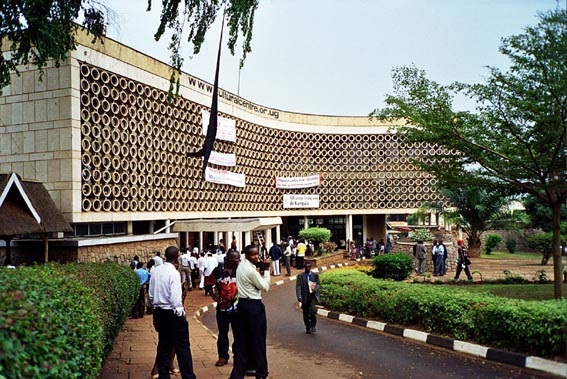
COMMENT | Alfred Geresom Musamali | Uganda should consider selling, leasing or demolishing its National Theatre because the target audience has since the lifting of the Corona Virus Disease 2019 (COVID-19) lockdown shifted from watching nightly paid small shows at the theatre. Instead, they now wait for annual free mega shows at the funerals of the country’s top lawyers.
These free mega shows are sometimes interspersed with soliloquays as in classical Greek tragedy or with physical knockabouts as in modern melodrama.
Increasingly, the common ingredient at those very sad but, to some funeral theatre goers, very entertaining free shows has been the deceased top lawyers not leaving behind any traceable written pieces of paper called wills.
Top diplomat was protagonist in the latest show
The main protagonist in the latest show, which Government spokesperson Ofwono Opondo has referred to as “…a hell that broke loose among otherwise educated and enlightened relatives who created the needless protracted drama…” was no less than His Excellency James Idule Amoko, Uganda’s Ambassador to Sudan.
Ambassador Amoko has lived (in criticism of drama we use the present tense, as if we are watching the characters’ actions live!) a thirty year childless civil marriage with the Supreme Court Justice Mary Stella Arach-Amoko and wants, upon her death intestate (without a written will which the Ambassador considers a mere paper) at Kampala’s Nakasero Hospital on June 17th 2023, to bury her at their marital home in Arra Parish, Pachara Sub-county, Adjumani.
Other members of the cast comprise biological children from an earlier marriage and other blood relatives of the Judge. The children and relatives are battling to receive, transport and bury the body of Arach-Amoko at her family ancestral home/burial ground at Jukiya Hill Ward, Juba village, Nebbi District “in accordance with the customary law of Ker Kwaro Kaal”. And the sober, judicious, participant observer who eventually provides a 30 page soliliquay in denouement (resolution) following the drama’s climax is High Court Family Division Justice Ketrah Kitariisibwa Katunguka.
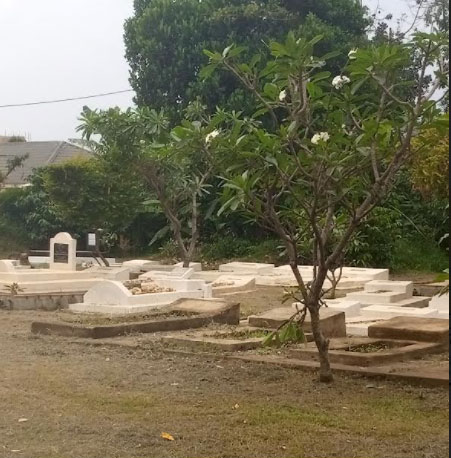
Former Deputy IGG could not miss being in the cast
Ambassador Amoko, together with his sidekick former Deputy Inspector General of Government (IGG) Raphael Baku, thinking of a win-win alternative in case he fails to bury his sweet heart in their marrital home, then suggests that they bury her on neutral ground – at the Arua Catholic Church cemetery. But the foresighted children and relatives, copy-pasting from Greek tragic playwrite Aeschylus in Agammnon, apply to court for grant of an alternative relief of exhuming the remains of the learned judge from Adjumani, Arua or wherever else and reburying them in Nebbi if the remains have already been disposed off by the time Justice Katunguka soliloquises her denouement. So careful are the children and relatives in crafting their arguments that they never bring out the usual issue in such cultural disputes – that Uganda’s top diplomat to Sudan has never paid any cows, goats, chicken or other bride price for the woman so he has no right to bury her at his home and that, in any case, he also has children from an equally earlier marriage who, being only step children of the judge, may not let her bones repose in peace if buried in Adjumani.
And you know what? For many funeral theatre goes, this is even the first time they have ever given any thought to the ethnic and geographical differences between the predominantly Madi community of Adjumani (closely related to the predominantly Lugbara of Arua) and the predominantly Alur of Nebbi (closely related to the Acoli, Lango and Japadhola communities scattered in far flung parts east of the Nile). Matters are not geographically helped when the theatre goers learn that Adjumani is east of the Nile (180 kms by road north-east of Arua) but, along with Nebbi (80kms by road north of Arua), form part of the West Nile sub-region – kati laba (now see) the confusion!.
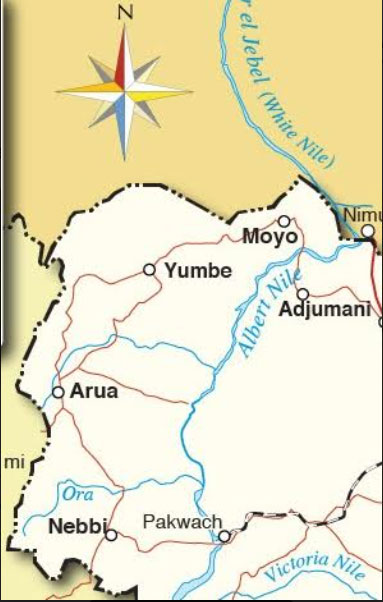
Suspense is a great dramatic technique in last year’s show
The theme of a similar drama last year (2022) revolves around the death of Parliament Speaker Jacob Oulanyah on March 20th while undergoing treatment in Seattle, United States of America (USA). Oulanyah lost a wife several years ago, remarried, but developed differences with the new wife and the two parted their ways.
However, the moment President Yoweri Museveni announces the death, Oulanyah’s father Mzee Nathan L’Okori suspects that his son has been poisoned and that some other mysterious lady assumed to have been living with the deceased at the time of his death is hiding vital documents, among them bank records, land titles and, presumably, the will. At the burial held in Ajuri village, Lalogi sub-county, Omoro district, Mzee L’Okori cries out with Mark Anthony’s oratory skills in William Shakespeare’s Julius Caesar that Chief Justice Alfonse Owiny-Dolly should protect Oulanyah’s estate.
“I have learnt that a certain lady is meddling with Jacob’s estate, tampering, and hiding documents. You (Owiny Dollo) are the one in charge of laws in Uganda. So I want you to safeguard Jacob’s estate from meddlers,” Mzee L’Okori told Owiny Dollo.
Turns out that the “ mysterious” lady was the only person, male or female, who has been in position to care for the Oulanyah when he was sick as neither his father nor his children could competently do so. The funeral theatre goers have this time been left in suspense – oba bya katemba byakoma wa (I wonder how the denouement part of the drama’s plot is crafted)!
Armed force plays a major role in the 2021 show
The 2021 drama has at its centre at the burial site of city lawyer Robert (Bob) Aldridge Kasango who succumbed to heart-related complications from Luzira Prison, where he has been serving a 16-year jail term for theft of more than 15 billion Shillings meant for pensioners. Burial of Kasango’s remains is delayed for over a month by a bitter fight between his widow Nice Bitarabeho who wants the burial to be taken to her ancestral home in Kabarole (extreme western Uganda) and his mother Rose Kabise who instead wants it in her marital (not even ancestral, although that too was near!) village Tororo (extreme eastern Uganda). At the climax of the show, a section of relatives from Tororo grab Kasango’s casket from All Saints Cathedral in Kampala, where it has been announced, after a funeral service, that the deceased will be buried in Kabarole.
But the vehicle sneaking the body to Tororo is intercepted by heavily armed police who send the casket back to the funeral home home where it is to be held for many more days. Bitarabeho, among whose brothers is a top military general, meanwhile seeks a court order to bury the husband in her ancestral village on grounds that Kasango had denounced his family and never wished to be buried in Tororo. Culturally, it is unheard of in Uganda for any man to be buried in his in-law’s home, but Court hears that Kasango was never close to his own family members in life, not even to Kabise. Bitarabeho tells Court that one of the family members has confided in her that the family in Tororo had at one time even planned to kill Kasango when he was still young, as a result of family wrangles.
Unverified reports indicate that Kasango’s father was suspected to have had a relationship with Kabise, among other sisters, which resulted in the birth of the lawyer. Bitarabeho narates how she never met her mother-in-law for up to seven years into her marriage and that every time she asked Kasango about his father, he broke down in tears. But Kabise tells court that Kasango was born to a Musoga father called Livingston Richard Kasimo and raised by his stepfather Bonaventure Okello, a Japadhola from Tororo, to whom she is still married. According to Kabise, Kasimo died many years ago and was buried somewhere in Luwero. She adds that Kasango had bought her land in Tororo and that is where she wants her son buried. However, during cross-examination, it turns out there is no proof of Kasango’s purchase of land in Tororo. Justice Lydia Mugambe Ssali rules in favour of Bitarabeho and instructs that the burial takes place within four days. Justice Mugambe explains that the Japadhola culture is not applicable to Kasango since his mother already indicated that his biological father was from Busoga. She adds that Kabise should also not impose that culture onto the deceased, in a country that has about 54 tribes whose people keep migrating to other areas.
Great songs and soliloquay too part of the most recent show
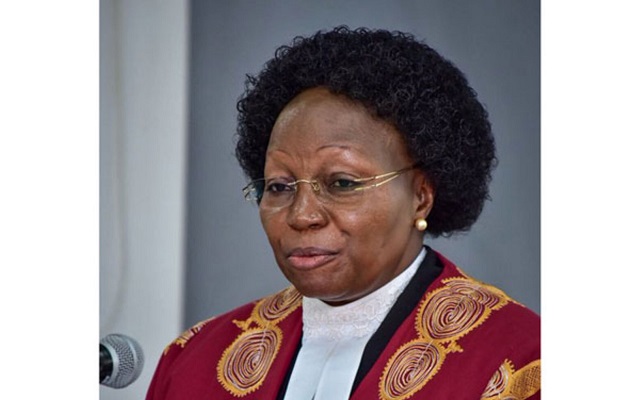
Punning on the names of the deceased judge, Uganda Christian University (UCU) lecturer Emilly Comfort Maranchito writes, “This Stella was a bright star in the real sense of both meaning of her name and her whole life. This Mary was so full of grace among women. To the world, Mary Stella was a great jurist. For many of us, she was simply “an angel in the shape of a mum’s, as Ed Sheean puts it in the song, Supermarket Flowers. Then in her soliloquay, Justice Katunguka says Maranchito’s angel, “being the grandchild of Chief (Rwot) Dacaunder Kaal Ker Kwaro Jonam Kapita tribe, culturally could only be buried on the Royal grounds at Kaal Ragem” in Pakwach district and in accordance with and observation of the Ragem culture and customs. She points out that prior to the death of Maranchito’s angel, the deceased opted (verbally) to be buried next to her late father at her family compound or ancestral burial ground in Nebbi and that the deceased had categorically and unequivocally communicated this position to family members.
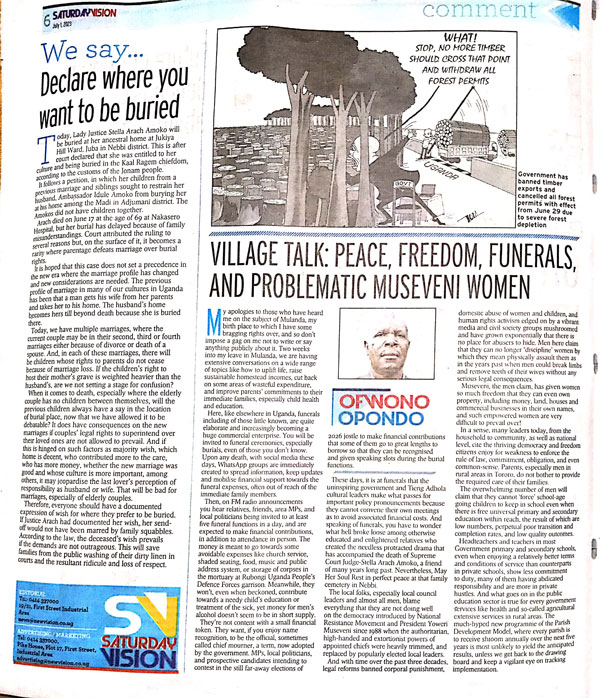
“The only home known by the applicants is that built by the deceased at Jukiya Hill Ward, Juba village, Nebbi district on 18th of June 2023,” says the Judge. She says a family meeting attended by the applicants, the deceased’s mother and other relatives as well as Ambassador Amoko and his biological children was held at Mbuya, Kinawataka, Nakawa Division Kampala where it was agreed that the deceased’s wishes to be buried at her ancestral home next to her late father in accordance with her custom as their culture demands.
Well, with such free drama at funerals of top lawyers, who in their legal advice to us mortals emphasise the need for written wills, dying intestate, who needs an ill-kept, poorly lit National Theatre in the traffic-congested city centre where shopping malls would make more business sense? Therefore, Ofwono Opondo, please, tell the Uganda Government to sell, lease or demolish it.
Justice Arach Amoko is due to be finally buried within a few hours after this piece goes live. I never met you in person, was never affected directly by your work but I am bound to take it from Maranchito (who I know in person) that you were an angel. Rest in Peace, Justice Arach Amoko!
*******
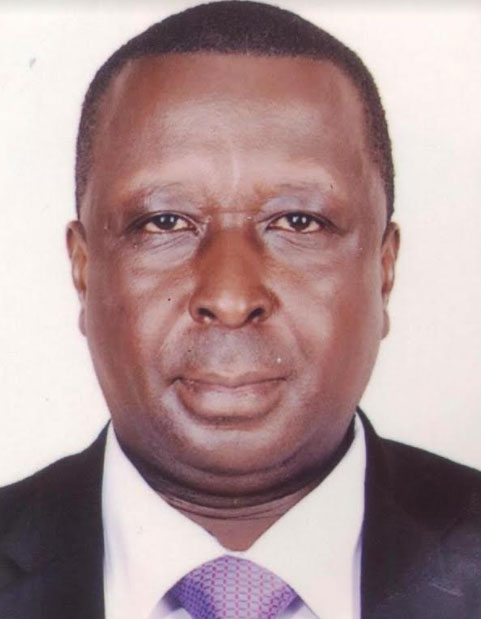
The author is Founding Director of Vicnam International Communications Ltd, a private firm of communications, public relations and information management consultants. He specialises in the Proofreading and General Editing (PAGE) of documents and can be contacted by Tel: (+256)752-649519 and by Email: agmusamali@hotmail.com.
 The Independent Uganda: You get the Truth we Pay the Price
The Independent Uganda: You get the Truth we Pay the Price
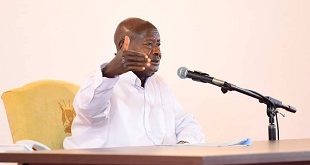


Thanks -as always -for your thought-provoking, informative piece rendered in a lively, tongue-in-cheek style. Asante comrade Musamali.